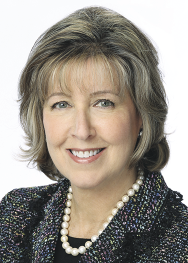 World Business and Economic Analysis
World Business and Economic Analysis
 World Business and Economic Analysis
World Business and Economic Analysis

In the past few days, two Danish banks as well as an Austrian one have signed major finance deals with Iran to become the first two European countries in providing loans to Iran after the implementation of nuclear deal.
Denmark's Danske Bank signed a €500 million finance contract with 10 Iranian banks on Thursday, becoming the second European lender to ink such an agreement with Iran, after Austria’s Oberbank signed a major finance deal ceiling of €1 billion with 14 Iranian banks.
The move is significant as European banks are particular wary of doing business with Iran due to US sanctions. Iran is hoping that the measure would lay the groundwork for other European companies to take similar steps in the near future.
Danske’s contract has been signed with Saman Bank, Bank Mellat, Tejarat Bank, Bank Melli Iran, Bank of Industry and Mine, Bank Sepah, Bank Pasargad Iran, EN Bank, Bank Keshavarzi, and Parsian Bank.
Danske, founded in 1871 and headquartered in Copenhagen, is active in 16 countries in the world and in addition to banking services, it provides insurance and housing services as well.
Karsten Stroyberg, Head of Middle East & North Africa, Danske Bank, told reporters that the contract signed with Iran was an important step in facilitating trade with Iran, especially among the Nordic countries including Denmark, Sweden, Norway and Finland.
According to him, the contract makes financing bigger and long-term projects possible, thus making it a “great opportunity” for development of trade between Iran and the Nordic region.
The second contract signed between Iran and Denmark after months of negotiations is an MoU with EKF (Denmark's Export Credit Agency), which provides credit coverage and can finance Iran’s various projects, particularly projects related to infrastructure.
Speaking to reporters, Jørn Fredsgaard Sørensen, head of EKF’s Country, Bank and Sector Risk department, said the contract issues guarantees covering loans to Iranian companies. Under the contract, EKF will also make efforts to encourage Danish companies to do more business with Iran.
“Doing business with Iran is improving. At the moment, we have made a tunnel through the mountain. Next step will be to place a train on the railroad and keep it going through the tunnel,” he said.

BANKS in Singapore have started a mortgage war, spurred by the lower interest rate for a longer duration, to the delight of the legions of home buyers who are pouring back to a buoyant residential market.
Last week, both United Overseas Bank (UOB) and HSBC launched three-year fixed-rate home-loan packages which until now had been mainly the preserve of DBS Bank, the nation's largest housing-loan provider. Bank of China (BOC) also has a three-year fixed-rate package but with varying yearly interest rates.
UOB and HSBC have joined DBS in selling three-year fixed-rate packages of 1.68 per cent for each of the three years, capitalising on the recent drop in interest rates amid doubts of further rate hikes by the US Federal Reserve.
The key three-month Sibor (Singapore interbank offered rate), which is used to price home loans, has fallen and been range-bound at 1.12283 per cent from a year high of 1.13717 per cent reached in July.
SEE ALSO: Investors should hedge risks, be market-selective in Q4: DBS
The total number of private homes sold in both the primary and secondary markets reached 6,905 in the second quarter of this year. This was the highest quarterly sales figure since the second quarter of 2013, when 6,945 units were transacted before the total debt servicing ratio framework was introduced in late-June that year.
The 6,905 private homes sold in Q2 2017 reflected increases of 32.7 per cent quarter on quarter and 51.8 per cent year on year.
In the first half of 2017, the transaction volume in both the primary and secondary markets was 12,107 units, up 63.7 per cent from the first half of 2016.
"When it comes to fixed rates, most lenders will have a two-year fixed-rate package to offer, but in recent years, only less than a handful would dangle a low fixed-rate term of three years due to the higher costs involved in hedging interest rates for a longer period with an improving global outlook," said Darren Goh, executive director of mortgage broker MortgageWise.sg.
As a result, only DBS and BOC are in the market offering a three-year fixed-rate package, he said.
HSBC came back into the mortgage business in Singapore with a roar last month with an aggressive two-year fixed-rate home loan at 1.52 per cent per annum, and further introduced a three-year fixed-rate this month at 1.68 per cent per annum, noted Mr Goh.
Said Matthias Dekan, HSBC Bank (Singapore) head of customer value management: "HSBC has introduced fixed-rate mortgage packages on the back of home buyers' demand and their expectations of further interest-rate hikes. Given this environment, customers prefer fixed-rate mortgage packages as they allow home owners to lock in the interest rate for the first two to three years of their loan tenure."
Mr Goh of MortgageWise, said: "For homeowners, with more lenders joining the fray to offer competitive fixed rates, it keeps the incumbents in check which leads to more choices and lower interest for everyone."
As for DBS: "We review our home loans on a regular basis to ensure that our rates are aligned with market conditions," said a spokesman on whether it would change its rates now that rivals have gatecrashed its party.
In May, DBS chief executive Piyush Gupta had said no one else in the home-loan market was able to match DBS's three-year fixed-rate package at 1.68 per cent.
The largest bank in South-east Asia, DBS has a arsenal of cheaper deposits than its competitors, which would come in handy in a home-mortgage market-share fight.
A UOB spokesman said: "Our range of home-loan packages is designed to suit the needs of our customers. For example, fixed-rate packages offer customers certainty and assurance that their monthly repayment amount will not be affected by market movements."
OCBC Bank, the second-largest bank in Singapore, remains conspicuous by its absence in the three-year fixed-rate space. It has a two-year fixed-rate package at 2.38 per cent.
Mr Goh noted that banks have recently raised rates for their floating-rate packages, narrowing the gap with fixed-rate loans to within 20 basis points.
"However, there may still be those who would go for floating; for example those thinking of selling their property soon, or those with loans above S$2 million and who believe rates will not rise so quickly or at all," he said.
At S$2 million, on a straight-line basis, each 10-basis-point saving on a floating rate, over the higher fixed rate, translates into S$2,000 savings in a year.
"Generally, fixed rate is the way forward, until such time this latest fixed-rate war ends, which is when we expect US Fed to announce in its meeting this month to start trimming down its massive US$4.5 trillion bonds," Mr Goh said. "We think that is when the market will start to see some real upward pressure on the dollar and 10-year yields, with interest rates going north within three to six months of such bond sale actions.
"Homeowners should make use of this window of opportunity now to lock down fixed rates especially for the longer fixed term."

Regardless of how you invest, at Worldbusinessyear (WBY) we believe that the smallest investors should have the same rights as even the largest investors and that is why only A shares, with full voting rights, are offered to all investors.
WBY allows you to invest in the shares of early-stage and growth-focused businesses and to benefit as they increase in value. We provide three types of campaigns that allow you to become a shareholder in these businesses.
Investing in a regular equity campaign is the simplest and most common way to invest in a startup. You decide which business you want to invest in, and if the campaign hits its funding target then you will become one of their shareholders. As the company becomes more valuable, so do your shares; allowing you the opportunity to share in the future success of the business.
For example, if you invest £1,000 into an equity crowdfunding campaign, you will become the owner of a certain number shares in the company depending on the share price.

These campaigns are often eligible for SEIS/EIS tax breaks and the minimum investment is just £10. Check out our equity campaign term sheet to learn more.
Investing in a fund campaign allows you to invest in multiple businesses with one click of a button. When you invest in a fund on Seedrs, you will become a shareholder in each of the underlying businesses that the relevant fund organiser or manager chooses.
The fund organiser (who may run an accelerator or venture capital fund, for example) identifies the businesses and often provides them with advice, support and mentorship.
The key to successful equity investing is diversification, and a fund campaign allows you to easily diversify with the added benefit of the businesses receiving additional support and help. For example, if you invest £1,000 into a fund campaign, each business will receive a portion of the cash invested and you will receive shares in those companies.

Convertible campaigns are often used by businesses when there is a large fundraising round on the horizon, but they want to raise a smaller funding round in the meantime. By offering a convertible, the business doesn’t need to put a valuation on their company now and therefore avoids potentially affecting their negotiations with the future investors.
When an investor purchases equity in a business, the purchase price of the equity implies a company valuation. For example, if an investor purchases a 10% stake in a company and pays £10,000 for that stake, this implies that the company is worth £100,000.
Investing in a convertible campaign allows you to invest today, with your investment converting into equity in the future, at a discount compared to other investors. This is a very common structure used by angels and VCs all over the world.
Convertible campaigns avoid the need to agree a specific valuation on the company and instead offer investors a discount (referred to as the “Discount”). When the convertible converts to equity in the future (usually when there is a new round of funding), it will be converted based on the discount to the valuation at the time of the new round of funding, sometimes subject to a maximum valuation (referred to as the “Valuation Cap”).
While this is the standard approach to convertibles, each one is unique which is why we attach a document to each convertible campaign on Seedrs outlining exactly what the specific terms are for that particular campaign. We strongly suggest that a potential investor familiarise themselves with this document before deciding to invest.
For example, if you invest £1,000 in a convertible campaign on Seedrs, and a new investor invests £1,000 at the time of the new funding, you would receive more shares than the new investor.
